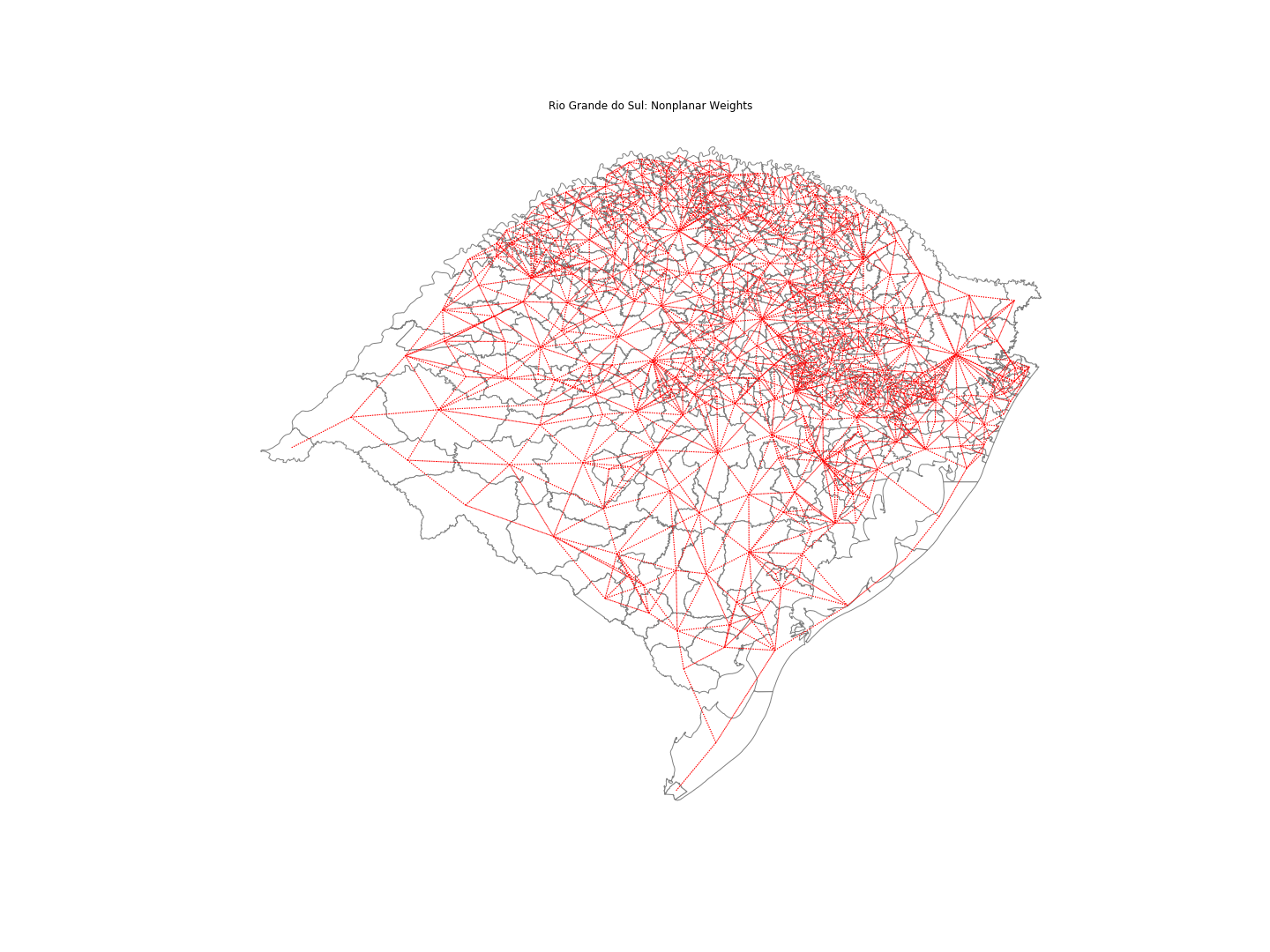libpysal: Python Spatial Analysis Library Core¶

Introduction¶
libpysal offers five modules that form the building blocks in many upstream packages in the PySAL family:
Spatial Weights: libpysal.weights
Spatial Graphs: libpysal.graph
Input-and output: libpysal.io
Computational geometry: libpysal.cg
Built-in example datasets libpysal.examples
Note
A new Graph class is being added to libpysal. For users interested in migration from using Weights to the new Graph class, see the migration guide. For developers interested in the technical details details see W and Graph Components.
Examples demonstrating some of libpysal functionality are available in the User Guide.
Details are available in the libpysal api.
For background information see [RA07].
Development¶
libpysal development is hosted on github.
Discussions of development occurs on the developer list as well as discord.
Getting Involved¶
If you are interested in contributing to PySAL please see our development guidelines.
Bug reports¶
To search for or report bugs, please see libpysal’s issues.
Citing libpysal¶
If you use PySAL in a scientific publication, we would appreciate citations to the following paper:
PySAL: A Python Library of Spatial Analytical Methods, Rey, S.J. and L. Anselin, Review of Regional Studies 37, 5-27 2007.
Bibtex entry:
@Article{pysal2007, author={Rey, Sergio J. and Anselin, Luc}, title={{PySAL: A Python Library of Spatial Analytical Methods}}, journal={The Review of Regional Studies}, year=2007, volume={37}, number={1}, pages={5-27}, keywords={Open Source; Software; Spatial} }
License information¶
See the file “LICENSE.txt” for information on the history of this software, terms & conditions for usage, and a DISCLAIMER OF ALL WARRANTIES.
libpysal¶
Core components of the Python Spatial Analysis Library (PySAL)
